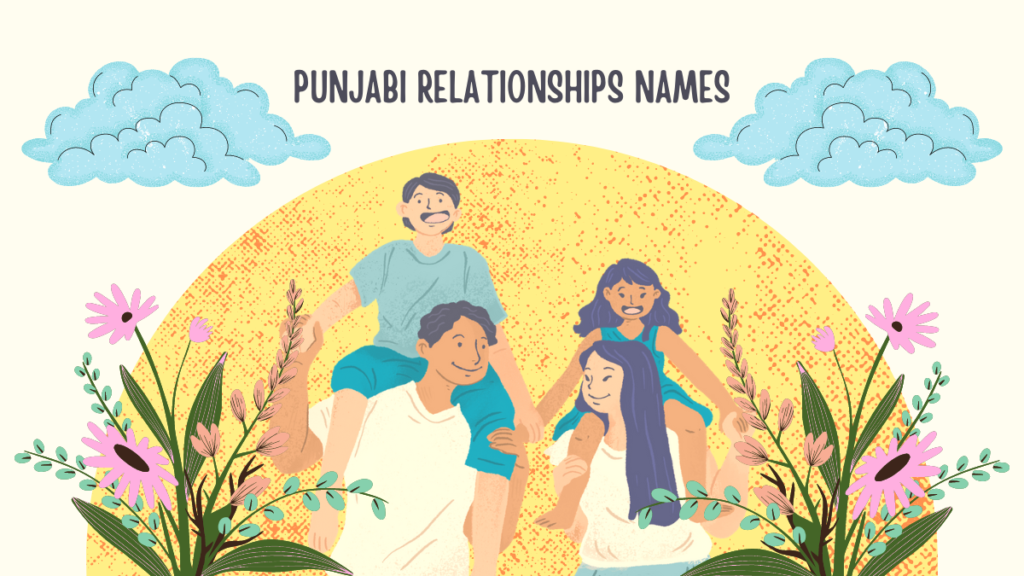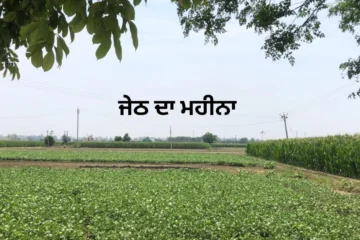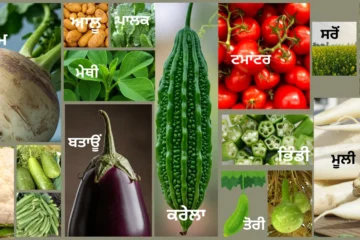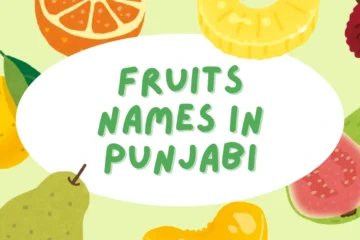
Explore the rich heritage of Punjabi relationships names in this detailed guide. Learn the specific terms used for family members and loved ones, reflecting the respect, love, and hierarchy within Punjabi culture. Discover how these Punjabi Relationships names contribute to the strong bonds in Punjabi families.
Introduction about Punjabi Relationships Names
Punjabi culture is rich with tradition and values. Relationships hold a special place, and specific names are used to denote various family members and loved ones. These names reflect the respect, love, and hierarchy within the family and community. Let’s explore the different relationship names used in Punjabi culture.
Family Relationships
Parents and Children
Father (Pitaji)
In Punjabi culture, the father is often called “Pitaji.” This term is a mark of respect and affection. Fathers are seen as protectors and providers in the family. They are often the decision-makers and are responsible for the well-being of their children.
Mother (Mataji)
“Mataji” is the respectful term for mother. Mothers hold a central role in Punjabi families, providing love, care, and guidance. They are the nurturers and are often the emotional backbone of the family, ensuring that traditions and values are passed down to the next generation.
Son (Putar)
A son is called “Putar.” Sons are cherished and often seen as the carriers of the family legacy. They are expected to take on responsibilities and support their parents as they age, continuing the family name and traditions.
Daughter (Dhee)
“Dhee” is the term for daughter. Daughters are loved and respected, playing a vital role in maintaining family bonds. They are often seen as the bearers of familial love and culture, bridging the gap between generations.
Siblings
Brother (Veer/Bhai)
Brothers are referred to as “Veer” or “Bhai.” These terms signify a strong bond of camaraderie and protection. Brothers often look out for each other, providing support and companionship throughout their lives.
Sister (Bhain)
Sisters are called “Bhain.” Sisters share a deep bond with their siblings and are often the emotional anchors of the family. They play a crucial role in family gatherings and maintaining harmony within the household.
Extended Family
Uncle (Chacha/Mama)
Uncles on the father’s side are called “Chacha,” and those on the mother’s side are “Mama.” They play significant roles in the extended family, often acting as secondary father figures and providing additional support and guidance.
Aunt (Chachi/Mami)
Aunts on the father’s side are known as “Chachi,” and those on the mother’s side are “Mami.” They are loved and respected family members, often helping in raising children and maintaining family traditions.
Cousins
Our Chacha/Chachi, Taya/Tayi, Mama/Mami, Massr/Masi’s kids knows as cousins. Cousins often grow up together, sharing childhood memories and continuing to support each other into adulthood.In Punjabi culture, family relationships are significant, and cousins hold a special place. Here are the terms for cousins in Punjabi:
First Cousin (Male):
- Father’s brother’s son: ਚਚੇਰੇ ਭਰਾ (Chachere Bhra)
- Mother’s brother’s son: ਮਾਮੇਰੇ ਭਰਾ (Mamere Bhra)
- Father’s sister’s son: ਫੁੱਫੇਰੇ ਭਰਾ (Phuphare Bhra)
- Mother’s sister’s son: ਮੋਸੇਰੇ ਭਰਾ (Mosere Bhra)
First Cousin (Female):
- Father’s brother’s daughter: ਚਚੇਰੀ ਭੈਣ (Chacheri Bhen)
- Mother’s brother’s daughter: ਮਾਮੇਰੀ ਭੈਣ (Mameri Bhen)
- Father’s sister’s daughter: ਫੁੱਫੇਰੀ ਭੈਣ (Phuphari Bhen)
- Mother’s sister’s daughter: ਮੋਸੇਰੀ ਭੈਣ (Moseri Bhen)
These terms reflect the close-knit nature of Punjabi families and the importance of specific family relationships.
Marital Relation
Spouse
Husband (Pati)
In Punjabi, a husband is called “Pati.” Husbands are considered the heads of their families, providing support and guidance. They are expected to protect and provide for their wives and children, ensuring their well-being and security.
Wife (Patni)
A wife is referred to as “Patni.” Wives are the heart of the household, managing the home and nurturing the family. They play a pivotal role in maintaining the household, often balancing work and family responsibilities.
In-laws
Father-in-law (Sasur/Sauhra)
The father-in-law is called “Sasur/Sauhra.” He is respected and often plays a guiding role in the family. He provides wisdom and support, helping to manage family matters and resolve conflicts.
Mother-in-law (Sass)
The mother-in-law is known as “Sass.” She holds a vital position, often helping in the household and guiding the younger family members. Her experience and knowledge are highly valued in the family.
Brother-in-law (Devar/Deor, Jeth)
A younger brother-in-law is called “Devar/Deor,” while an elder brother-in-law is “Jeth.” These terms denote respect and familiarity. Brothers-in-law often share a friendly and supportive relationship, helping each other with family responsibilities.
Sister-in-law (Nanad,Jethani)
A younger sister-in-law is “Nanad,” and an elder sister-in-law is “Jethani.” They share close and affectionate relationships, often acting as friends and confidantes.
Grandparents and Grandchildren
Grandparents
Grandfather (Dadaji, Nanaji)
Grandfathers are called “Dadaji” (father’s father) and “Nanaji” (mother’s father). They are the patriarchs of the family, holding wisdom and experience. Grandfathers often share stories and traditions, passing down cultural values to the younger generation.
Grandmother (Dadiji,Naniji)
Grandmothers are known as “Dadiji” (father’s mother) and “Naniji” (mother’s mother). They are the matriarchs, providing love and guidance. Grandmothers often play a crucial role in caring for grandchildren and keeping family traditions alive.
Grandchildren
Grandson (Pota, Dohta)
A grandson is called “Pota” (father’s side) or “Dohta” (mother’s side). They are cherished and seen as the future of the family. Grandsons often share a special bond with their grandparents, learning from their wisdom and experience.
Granddaughter ( Poti, Dohti)
A granddaughter is known as “Poti” (father’s side) or “Dohti” (mother’s side). They are loved and nurtured within the family, often becoming the caretakers of family traditions and values.
Special Relationship Names
Respectful Terms
Elder Brother (Veerji)
“Elder Brother” is often called “Veerji.” This term is used to show respect and affection. Elder brothers are often looked up to for guidance and support, playing a key role in family decisions.
Elder Sister (Bhenji)
An elder sister is referred to as “Bhainji.” This term highlights the respect and love given to elder sisters. Elder sisters often act as second mothers, providing care and support to their younger siblings.
Affectionate Terms
Younger Sibling (Chotu, Choti)
Younger siblings are often called “Chotu” (for boys) and “Choti” (for girls). These terms are used affectionately, highlighting the playful and loving relationship between siblings.
Community Relationships
Neighbours
Neighbor Uncle (Chachaji)
A male neighbour is often respectfully called “Chachaji.” This term fosters a sense of community and respect. Neighbours often play a significant role in Punjabi communities, helping and supporting each other.
Neighbour Aunty (Chachi ji)
A female neighbour is referred to as “Chachiji.” This term shows respect and affection, emphasizing the close-knit nature of Punjabi neighbourhoods.
Friends
Best Friend (Yaar)
A best friend is called “Yaar.” This term signifies a close, unbreakable bond. Best friends are often considered part of the family, sharing in both joys and challenges.
Close Friend (Dost)
A close friend is known as “Dost.” This term is used to show friendship and trust. Close friends often share a deep bond, providing support and companionship.
Cultural Significance of Relationship Names
Respect and Hierarchy
Relationship names emphasize respect and the social hierarchy within the family, ensuring everyone knows their place and responsibilities. This system helps maintain order and harmony within the family unit.
Love and Affection
These names are also a way to express love and affection, strengthening family bonds. The use of affectionate terms helps foster a nurturing and supportive environment.
How Relationship Names Shape Social Interactions
Family Gatherings
During family gatherings, using these names fosters a sense of unity and belonging. They help reinforce familial ties and ensure that everyone feels connected and valued.
Festivals and Celebrations
During festivals and celebrations, these names add to the joyous atmosphere, reinforcing familial ties. They remind everyone of their shared heritage and the importance of family traditions.
Influence of Modernization on Punjabi Relationship Names
Changes in Urban vs. Rural Areas
Modernization has led to some changes in how these names are used, with urban areas seeing more western influence. However, rural areas often maintain traditional practices, preserving the cultural heritage.
Western Influence
Western culture has introduced new terms and altered some traditional practices, but the core values remain intact. The blending of cultures has led to a more diverse use of relationship names, reflecting the changing social landscape.
Preserving Tradition in Modern Times
Teaching Children
It’s important to teach children these names to preserve cultural identity and traditions. This can be done through storytelling, cultural activities, and daily interactions.
Using Names in Daily Life
Continuing to use these names in daily interactions helps keep the tradition alive. It ensures that the younger generation understands and appreciates their cultural heritage.
Conclusion
Punjabi culture places great importance on relationships. The specific names used for different family members and loved ones reflect the respect, love, and hierarchy within the family and community. Understanding these names helps in appreciating the rich cultural heritage and the bonds that keep Punjabi families strong. Each name carries with it a sense of duty, respect, and affection, contributing to the vibrant tapestry of Punjabi life.
FAQs about Punjabi Relationships
What are common Punjabi names for parents?
In Punjabi, parents are commonly called “Pitaji” (father) and “Mataji” (mother). These terms are used with great respect and affection
How do you address siblings in Punjabi?
Brothers are called “Veer” or “Bhai,” and sisters are called “Bhain.” These terms highlight the strong bonds between siblings.
What are the respectful terms for elders in Punjabi?
Respectful terms for elders include “Veerji” for elder brother and “Bhainji” for elder sister. These terms are used to show respect and affection.
How do you refer to cousins in Punjabi?
Cousins are called “Massey” or “Pheray.” These terms reflect the close-knit relationships within the extended family.
What are the affectionate terms used in Punjabi relationships?
Affectionate terms include “Chotu” for younger sibling, “Jaan,” and “Pyare” for loved ones. These terms express deep affection and love.


